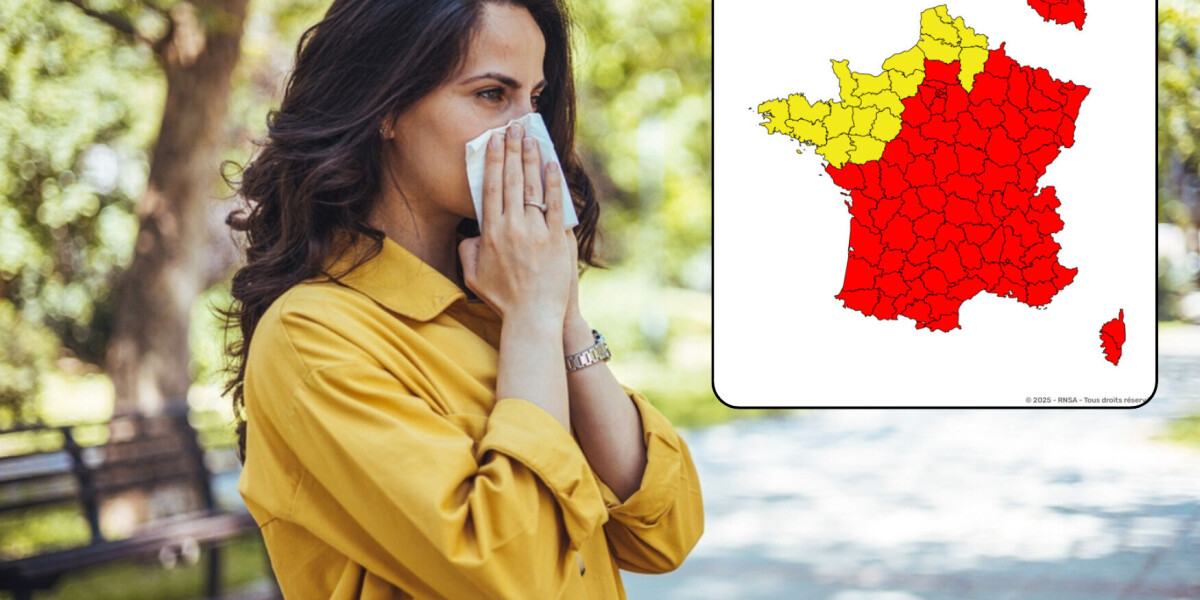
- Select a language for the TTS:
- UK English Female
- UK English Male
- US English Female
- US English Male
- Australian Female
- Australian Male
- Language selected: (auto detect) - EN
Play all audios:
ONLY THE NORTH AND NORTH-WEST HAVE ESCAPED THE HIGHEST RISK LEVEL SO FAR Almost all of France is now at maximum risk for pollen allergies, with 79 departments now on ‘red’ alert, the
national air quality monitoring network has said. The Réseau national de surveillance aérobiologique (RNSA) has placed these departments on ‘red’ risk (the highest risk), with those allergic
to cypress, cedar, and juniper pollen most affected. “There is a feel of spring in the air this week with mild, sunny and windy weather conditions that encourage the emission and dispersal
of pollen in the air,” said the RSNA. These allergies “greatly inconvenience sufferers from the south-west to the south-east of the country, with a high allergy risk,” it also said, adding
that “hazel and alder trees (Betulaceae family) are [also] in full bloom throughout the country, with a high allergy risk”, and there is also a risk from mimosas and ash pollen in the
south-east. The high risks are mainly due to recent mild temperatures, which have encouraged trees to blossom, RNSA said. The only departments still on yellow (medium) risk are those in the
north and north-west: Brittany, Normandy, Loire-Atlantique, Maine-et-Loire, Mayenne, Sarthe, Somme, Pas-de-Calais, Nord and Aisne. This means they still have significant risks, but not as
high as the others. It comes after eight departments were placed on alert on February 14, followed by 18 more on February 17. See the full list and risk levels on the RNSA website here.
National health agency ANSES (Agence nationale de sécurité sanitaire) estimates that almost one in three French adults and 20% of children over the age of nine suffer from seasonal hay fever
caused by a pollen allergy. Read also: LIST: Calendar of main pollen allergies in France month by month Read also: High risk of allergies in southeast France WHAT TO DO IF YOU SUFFER FROM
ALLERGIES The RNSA warned of symptoms including a runny nose and itchy eyes, and advised people to: * Take extra care and limit exposure to pollens * Follow any treatment plan or medication
to the letter * Consult a health professional if symptoms persist * Visit the RNSA website www.pollens.fr for more information if needed Rainy episodes may ease symptoms temporarily, the
RNSA said, because they “push pollen to the ground”. In contrast, it warned people to “watch out for sunnier, milder and windier days, which will encourage pollen to disperse into the air”.
The network also advises: * Avoid spending too long in a park or green areas, especially during the height of the day * Open windows early in the morning and late at night to air rooms, but
close them during the day to prevent pollen from coming indoors * Avoid drying clothes outside * Wear a mask and sunglasses if it helps * Wash or rinse your hair at night to prevent pollen
sticking to it and irritating you as you sleep The French Health Ministry also advises, in addition: * Avoid aggravating your symptoms with other irritants, such as tobacco, cleaning or DIY
products, interior perfumes or scents, incense, or candles, etc. * Keep your car windows closed when driving







